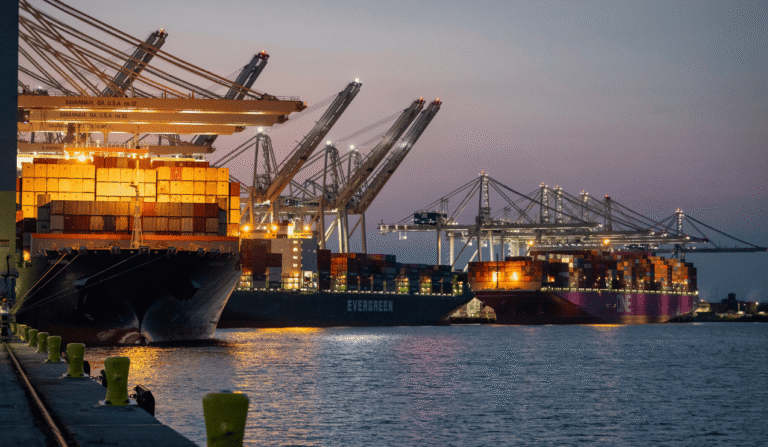India has put new rules in place for good imports from Bangladesh. Starting Saturday, May 17, India said that certain items from Bangladesh can no longer enter through land ports. This decision came as a response to new trade limits that Bangladesh placed on Indian products.
Now, if Indian businesses want to buy clothe imports from Bangladesh, they must use the Kolkata port or the Nava Sheva seaport in Maharashtra. Land ports will not be allowed for this purpose anymore.
The Global Trade Research Initiative (GTRI), a trade think tank, shared that this ban affects about 42% of total trade between the two countries. That is around $770 million worth of goods. This includes several everyday items and raw materials.
Indian news agency ANI reported that Bangladesh started putting restrictions on Indian goods late in 2024. These include a ban on Indian yarn through land ports from April 2025, tighter controls on rice imports, and bans on paper, tobacco, fish, and powdered milk. On top of that, Bangladesh began charging India a transit fee of 1.8 Taka per ton for each kilometer that Indian goods pass through its land.
Indian sources say these moves have hurt Indian exporters. An Indian official stated that Bangladesh cannot just pick trade terms that suit only itself. He added that India is open to talks, but Bangladesh must help create a friendly space for discussions.
India’s media has also noted that the northeast part of the country has been badly affected. These regions depend heavily on goods that come through Bangladesh. So, India’s new import limits appear to be a direct reaction to Bangladesh’s earlier steps.
Under the new rules, the following goods cannot enter India through land ports in Assam, Meghalaya, Tripura, and Mizoram. The same ban applies to the Changrabandha and Fulbari customs points in West Bengal:
- Fruits
- Fruit-flavored drinks
- Carbonated drinks
- Processed foods
- Cotton waste
- Plastic goods (unless they are specific raw materials)
- Wooden furniture
Impact on Clothing Exports
One big change affects Bangladesh’s clothing exports. Bangladesh sends about $700 million worth of clothes to India each year. Until now, much of this trade happened through land ports. But now, Indian buyers can only use the ports in Kolkata or Nava Sheva to bring these clothes in.
Trade Tensions Rising
The growing list of rules and bans shows rising tension between the two countries over trade. While both sides say they are open to talks, actions suggest a trade dispute is building. India’s move to restrict good imports from Bangladesh is seen as a direct reply to Bangladesh’s earlier rules against Indian imports.
Experts believe that unless both countries come to the table and agree on fair terms, more trade troubles could follow. This could hurt businesses on both sides, as well as the people who depend on cross-border trade.
As of now, there is no set date for when talks might happen. But officials in India are calling on Bangladesh to ease the situation so both nations can benefit from healthy trade.
For now, traders in both countries will need to adjust to the new rules, as governments figure out what to do next.







